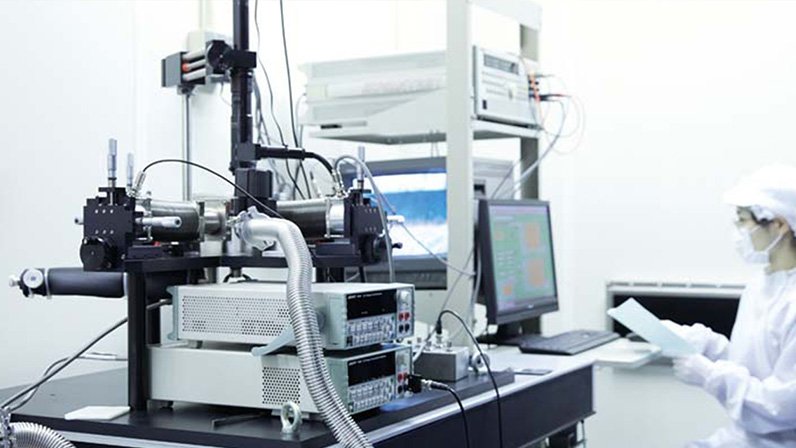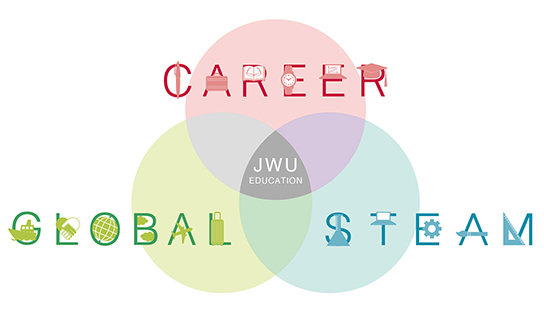To become a person who pursues natural science and responds to the demands of the times
The remarkable development of the natural sciences from the 20th century to the present day has been largely due to the interaction among various academic disciplines. For example, the elucidation of the structure of DNA is a feat in the field of physical chemistry, but it has revolutionized biology. In response to this academic trend, the Department of Chemical and Biological Sciences offers two fields of study, chemistry and biology. The Department deepens students' understanding of the natural sciences, which were long established through the intellectual activities of humankind, and nurtures their ability to respond to the demands of the times.
Features of the Department
Focusing on chemistry and biology
In order for students to study a wide range of chemistry and biology, the Department offers a number of subjects for each. Students can also choose to specialize in either field. It is also possible to select subjects related to environmental issues and biotechnology areas that are currently the focus of attention.
Students can choose subjects according to their interests and aspirations
Students can choose any subjects, allowing them to learn from a broad perspective, from the origins of matter to various life phenomena. The Department also emphasizes experimental subjects, and even undergraduates have daily access to state-of-the-art laboratory equipment. In the fourth year, students are assigned to a laboratory where they conduct research throughout the year.
Graduates pursuing science in business world and at research facilities
Graduates are active in the fields of food, pharmaceuticals, chemistry, and information and communication, or as a teacher and public official. Every year, approximately 20% of students choose to advance to graduate schools in agriculture, medicine, pharmacy and other scientific fields to enhance their own expertise.
Four years of study at the Department of Chemical and Biological Sciences
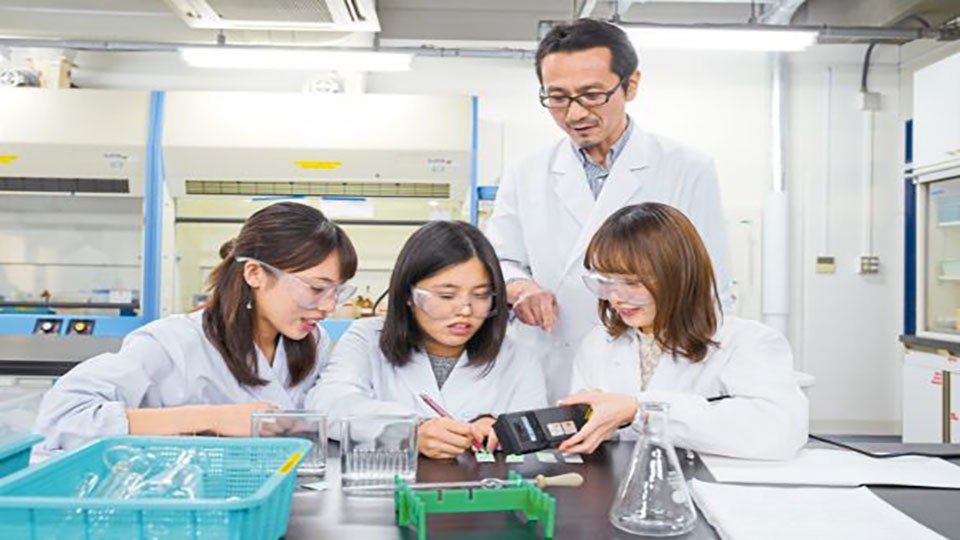
First year: Acquiring a broad education and perspectives with a focus on basic subjects
By learning the basics of science and various other fields, students will acquire a broad education and perspectives that will be an asset throughout their lives.
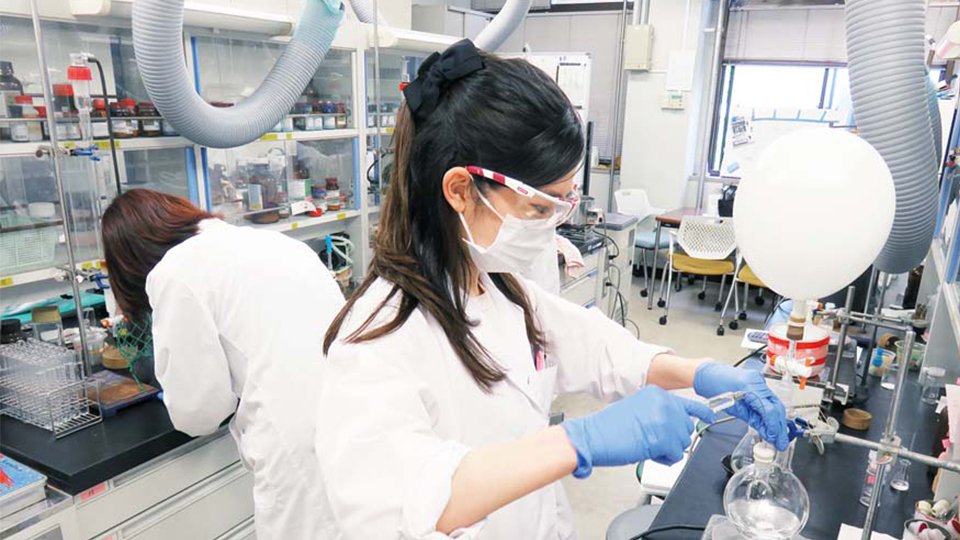
Second year: Studying a wide range of specialized subjects in depth and cultivating the ability to solve problems on their own.
Specialty subjects will begin and students will be required to study broadly and deeply. Through self-study and active questioning, students will develop the ability to solve problems on their own.
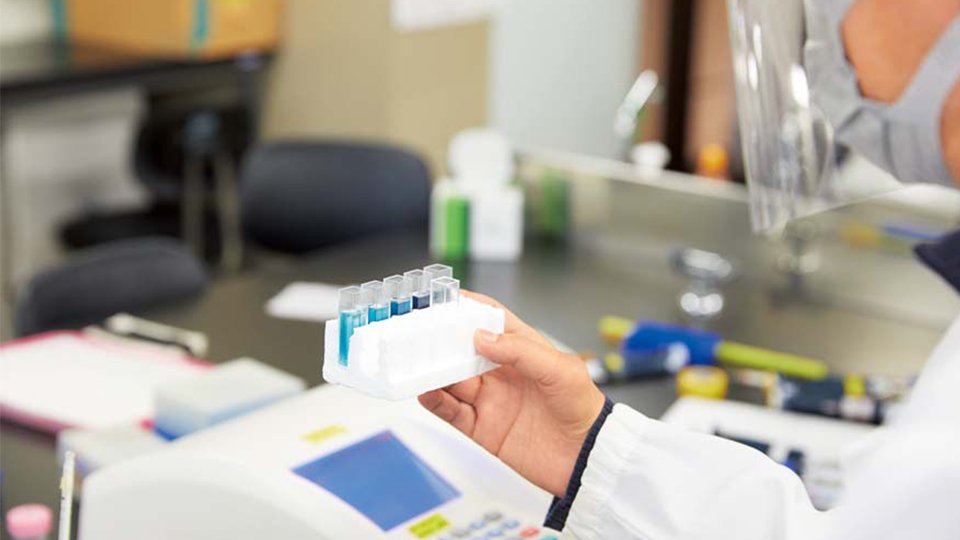
Third year: Further refining expertise and advanced skills
Students will further refine their studies in the area of specialization they wish to pursue. In the second semester of the third year, students will be assigned to a laboratory where they will conduct their graduation research.
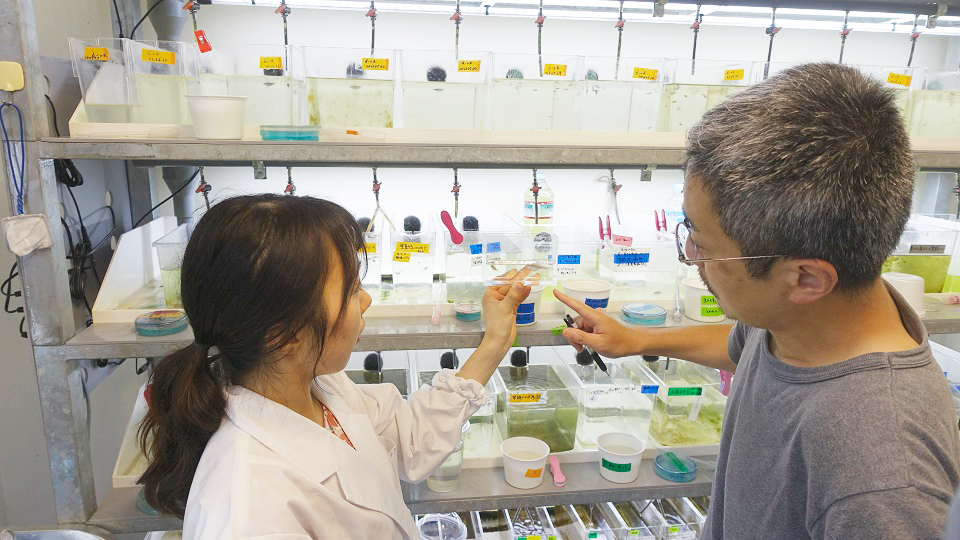
Fourth year: Cultivating problem-solving skills through graduation research
Students will spend a year concentrating on the graduation research. Students will develop the ability to find and solve problems on their own.
Class introduction
Biochemistry Experiments|2nd year
Experience matters. Through experiments, students will understand logical thinking.
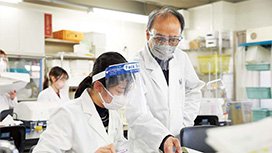
Professor
Applied microbiology, functional biochemistry, biofunction and bioprocess
Toru Yoshida
Assistant Professor
Structural biology, functional biology
Experiments require a different perspective than classroom learning. I consider hands-on experience to be the most important aspect of the class, and it is my policy to give students as much hands-on experience as possible. Even during the COVID-19 pandemic, I emphasize hands-on experience for all experiments and also training in writing reports that logically summarize the results.
The objective of the "Biochemistry Experiments" is to provide students with the basic experimental techniques needed to understand the mechanisms of metabolism. Specifically, the key themes of this class are the selection of research targets (isolation of microorganisms), understanding the properties of proteins, and knowing the structure of proteins, and the students will engage in intensive practical training.
Through these experiments, students will gradually come to understand what a logical way of thinking is like. We hope that the experience will help students to enhance the quality of their graduation research and beyond.
Faculty member introduction
Faculty members with a wide range of specialties provide education.

